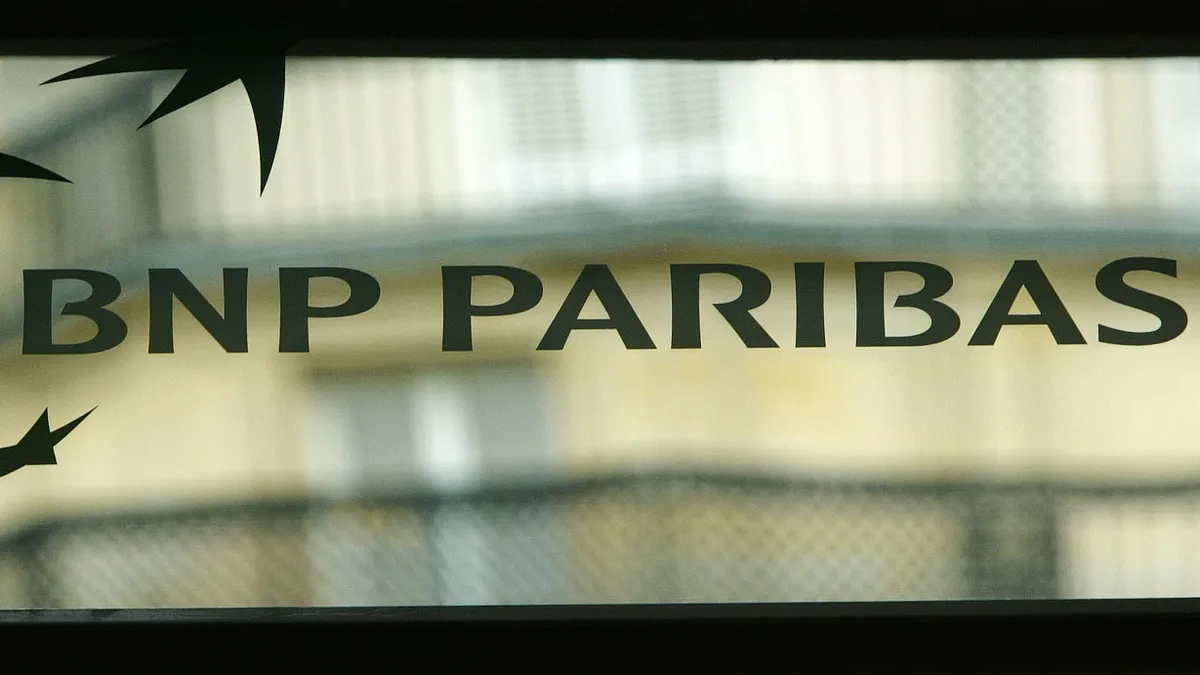For France’s largest lender, it may be the season of tying up loose ends.
BNP Paribas has agreed to pay between €400 million and €600 million to roughly 4,400 French customers who said they were not adequately warned of the foreign-exchange risks inherent in taking out mortgage loans denominated in Swiss francs.
During the 2008-09 financial crisis, BNP Paribas Personal Finance offered a mortgage product — designed as a tax-free rental investment — that allowed borrowers to buy small properties in Swiss francs (to take advantage of lower interest rates) but to repay in euros. However, the borrowers’ repayment amounts soared when the Swiss franc strengthened in comparison to the euro at the start of a debt crisis that hit Europe in 2010.
The settlement follows eight years of litigation led by CLCV, a French consumer group that said Tuesday it is “satisfied to have reached a friendly outcome, in the interest of the consumers concerned and without having to wait for [court] decisions to be taken,” according to a statement seen by the Financial Times.
A Paris appeals court in November ordered BNP Paribas’ consumer finance unit to pay roughly €200 million in damages to a group of borrowers who sued the bank as part of a separate criminal case focused on the same loans.
“An agreement has been found with the CLCV association to offer an amicable solution for clients who request it,” BNP Paribas Personal Finance said Tuesday in a statement seen by Bloomberg.
Under the agreement, the mortgage contracts — largely of properties valued around €150,000 — can be canceled, and customers will no longer have to pay interest on their loans, a source close to the matter told Reuters.
The CLCV settlement, however, is not the only payout BNP Paribas is facing. South Korea’s Financial Services Commission on Dec. 25 ordered the French bank to pay 11 billion won ($8.4 million) for naked short-selling, a person familiar with the matter told Bloomberg. The regulator also fined BNP Paribas’ local brokerage 8 billion won, the person said.
“The violations were a grave matter that hurts the market order and investor trust,” South Korea’s Securities and Futures Commission said in a Dec. 25 statement seen by Bloomberg.
South Korean authorities in November announced a ban on short-selling until June. Naked short-selling involves selling shares without borrowing them first.
BNP Paribas was not the only lender caught in the Asian nation’s cross-hairs. The regulator, also Dec. 25, fined HSBC 7.5 billion won for similar practices, Bloomberg reported.
The banks did not respond to emails from the wire service seeking comment.
A new strand
Despite the two loose ends BNP is resolving, a new strand may be unraveling.
A Paris prosecutor’s office last week confirmed that it opened a preliminary probe into "aggravated money laundering” — specifically, funds exceeding €220 million that, between 2019 and 2021, “allegedly circulated” through the cash accounts of a Cyprus-based brokerage, TCR International Limited, according to Le Monde.
BNP Paribas Securities Services provided custody services to TCR from January 2019 to January 2022.
The Paris probe came in response to an alert submitted in May by TRACFIN, a financial intelligence offshoot of the French Economy and Finance Ministry that reported suspicious flows from TCR — potentially involving Russian and Ukrainian citizens, according to Le Monde.
Le Monde confirmed Russian nationals among TCR's client list, based on data leaks obtained from the International Consortium of Investigative Journalists.
The U.S. Justice Department, incidentally, is looking to identify financial intermediaries and networks used by the Wagner Group, the Russia state-funded private military company involved in the war against Ukraine. The DOJ had sent a request for mutual legal assistance to France, the Paris prosecutor confirmed to Le Monde, without further comment. The DOJ, for its part, refused to confirm the existence of an investigation, or to comment on the matter.
TCR, meanwhile, told Reuters it has not handled any financial transfers on behalf of Wagner or its former leader, Yevgeny Prigozhin, who was killed in an August plane crash. The brokerage said its operations fall under strict compliance rules and that it condemns money laundering practices.
TCR told Le Monde in a separate letter that it had found no evidence that Wagner, Prigozhin or any of its affiliations were linked to past or present clients.
A preliminary investigation does not mean TCR is being targeted, lawyers for the brokerage emphasized to Reuters, adding that no registered investigation mentions TCR as a person of interest.
BNP Paribas told Reuters it could not comment when asked whether it was aware of the investigation. The bank has a global compliance system in place and is committed to meeting its regulatory obligations, it said.






















